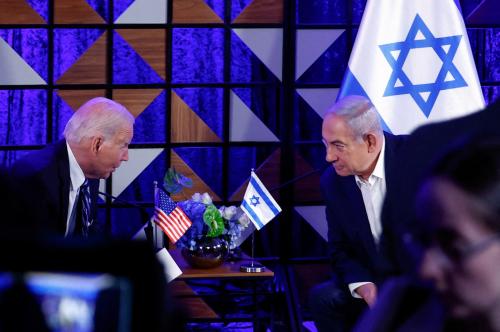There may be no greater sign that a return to normalcy is at hand than the good old-fashioned partisanship we saw as the House and Senate sparred over their competing bills on airport security.
Of all the areas to spark a political battle, however, this one makes the least sense. The House’s reasons for not wanting a federal security force sound reasonable in theory, but they fall on their face when considering the crisis at hand.
Many opponents of federalizing security believe that if a job can be done by private business, then it should be. On Sept. 11, however, we saw the dangers of a different sort of private efficiency.
The Argenbright company (owned by a European conglomerate) provides security at 17 of the nation’s 20 largest airports, including Boston’s Logan, Washington’s Dulles and Newark. The firm pleaded guilty last year to conspiracy and fraud charges related to its inadequate training and background checks for thousands of employees. Recent inspections at Dulles found it still has systematic problems; seven out of 20 of its screeners tested did not have the skills needed to do their jobs.
Market efficiency comes at the risk of market failures. Turning to the market induces some companies to offer leaner and more effective solutions. But it can also lead other companies to cut corners in order to earn profits, including paying their employees pitiful salaries or saving money through shoddy employment and training practices.
Given the breakdown by private security on Sept. 11 and the continuing dangers that their poor standards of performance present, it makes sense to turn this business back over to public servants, whose primary concern is the community’s safety, not the bottom line.
Others in the House oppose the federalization of airport security because they fear it will expand the size of government. While rooted in common sense, this also is a red herring. Regardless of the outcome on airport security, winning the fight against terrorism will require more soldiers, more border guard inspectors and more biological warfare experts. All will be part of the government.
More importantly, there is nothing wrong with that. A strong government is not inherently bad. Rather, the danger is if it interferes in the wrong areas, such as religion or the arts. If our safety isn’t the role for the government, what is?
Some politicians apparently also oppose the federalization of airport security because it might lead to more federal workers, who will be members of unions. They argue that union workers tend to perform worse and are harder to replace if they do a poor job. While we all know the stereotype of the lazy federal employee, this is no time for stereotypes.
Most of the brave police, fire and rescue personnel who died in New York were members of government employee unions.
Did this make them somehow less worthy of our respect and support? Did they do a worse job because of the professional organizations they were part of? The fact is that nonunion workers are the ones now who are not performing to the required standards.
Moreover, the problem with airport security is not a matter of getting rid of poor employees. Instead, it is the exact opposite?the incredibly high turnover within the current work force. Paid at cut-rate wages, airport security employees don’t last longer than six months and thus don’t build up the expertise to do their job.
At the base of these politician’s fears, however, is something more pernicious. Many believe that a broadened federal union work force would be more likely to vote for one party and thus should be prevented. This idea deserves not only our scorn but censure.
Leaving aside that the small number of new employees (about 20,000) would be unlikely to swing any election, unless they were all based in Florida, the assumption that public safety should rank behind potential voting patterns is disturbing. The key is who can do a better job, not whether they tend to vote Republican or Democrat.
In the end, the choice is clear, and it is one that an overwhelming majority of the American public supports. Our airports deserve the same level of protection that the members of the House now enjoy for themselves but chose to vote against – that provided by government employees.
Let’s hope bipartisan compromise will return and bring us back to reason.



Commentary
Op-edArguments Against Federalization Flimsy
November 7, 2001